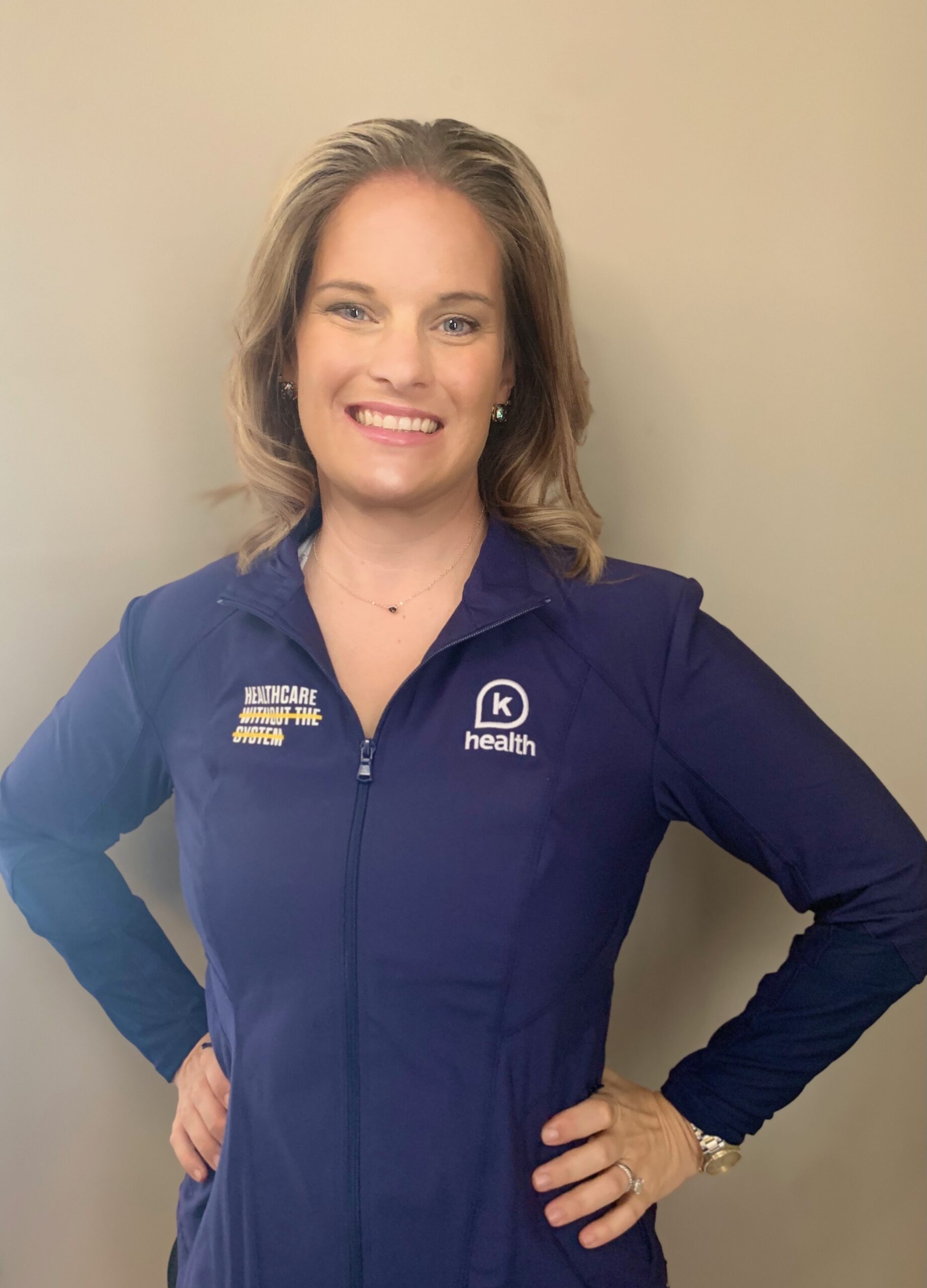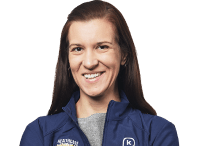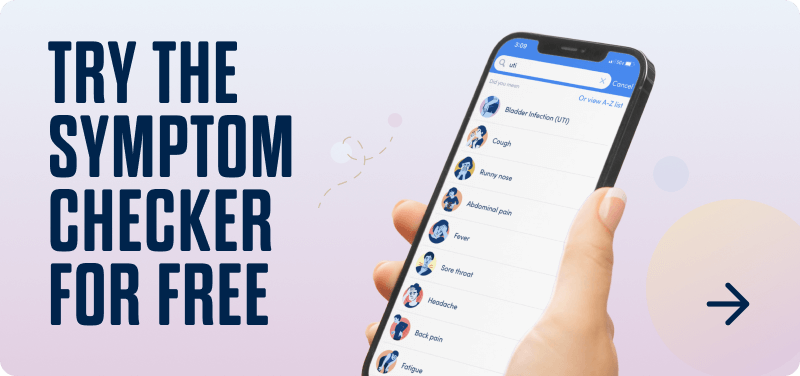People transitioning through menopause may find themselves gaining weight and having a more difficult time losing it or keeping it off. Weight gain during this life transition occurs partly because of a drop in estrogen.
Other factors such as stress, slower metabolism, and age-related loss of muscle tone can also cause an increase in body weight, especially in the stomach area.
The good news is that weight loss, while perhaps more difficult during menopause, is possible. There are some tried and true methods that people have found to work for this challenge.
In this article, we go over details about menopause and why your jeans may be fitting tighter during this life’s phase. Then we share some tips for how to lose weight during menopause.
Understanding Menopause and Weight
Menopause is a critical event in a person’s life. During this time, people with vaginas experience psychological and physical changes in their bodies. Menopause officially begins 12 months after a person’s last period.
However, years leading up to that point, during the perimenopausal period, a person may already be experiencing changes such as
- Altered monthly cycles
- Hot flashes
- Loss of bladder control
- Trouble sleeping, including night sweats
- Dry vagina, including discomfort during sex
- Mood swings
- Weight gain, including change in fat distribution
- Loss of muscle tone
- Aching joints
The menopausal transition years usually begin between the ages of 45-55 and may last 7-14 years. Research shows that menopausal symptoms are more pronounced in people who are obese compared to those who don’t.
It also shows that people who lost weight, improved their symptoms, especially hot flashes, mood swings, and sleep disruptions. During menopause, the ovaries stop producing eggs, estrogen, and progesterone hormones. Along with the decrease of estrogen, there is an increase in circulating testosterone.
This change in hormone levels causes a shift in fat distribution from the hips to the waistline.
Decrease in estrogen levels
Estrogen affects many other parts of the body, including:
- Regulating the menstrual cycle
- Maintaining bone health
- Regulating cholesterol levels
- Your physical appearance, including fat distribution
Natural aging process
There are also natural aging processes and lifestyle changes that contribute to weight gain.
As people age, their metabolism naturally slows down, and usually, they become less physically active. These changes lead to a decrease in muscle mass and an increase in body fat.
Other natural changes that may occur at this time include:
- Problems with short-term memory
- Decrease in breast tissue
- Lower sex drive (libido)
- Increased risk for bone loss
- Loss of pelvic muscle tone
Manage weight loss online
See if you’re a good fit for K Health’s online medical weight loss program.
How to Lose Weight During Menopause
So now that you understand a little better about what is going on inside your body. Let’s talk about how you can start to lose this extra weight while you move through menopause.
Increase Exercises You Enjoy
Regular exercise has several benefits during menopause, including:
- Promoting weight loss
- Maintaining muscle tone that naturally wants to decrease
- Maintaining bone density health
There are so many types of exercises promoted these days, so let’s break it down into what the best exercises are for menopause. Research shows that people in menopause should get 150 minutes of exercise each week.
The exercise should include moderate-intensity physical activity such as:
- Aerobic exercises (walking, swimming, jogging, and cycling)
- Resistance training 2-3 times a week
- Balance exercises
The combination of these three types of exercise prove to be the most effective at managing menopausal weight gain.
Here are some practical tips for incorporating these activities into your week.
- Start with a warm-up which includes full body stretches and walking for 10 minutes. This helps prepare your muscles and joints.
- To incorporate aerobic exercise, start by taking walks at a comfortable pace. As your endurance increases, begin adding in other aerobic activities such as dancing, cycling, or swimming.
- Incorporate resistance training by using resistance bands, weights, or your own body weight. Try to do these exercises daily, but alternate which muscle groups you work out. For example, one day, work out your arms and shoulders, and the next day focus on your legs and glutes. The following day work your abdomen and back, then start your rotation over again.
- Practicing yoga and stretching helps you remain flexible in older age. Try to get in a yoga or stretching session a few times a week. Stretch when you wake up and before you go to sleep.
- Balancing exercises will help your posture and decrease your risk for falls. Some great balancing exercises include tai chi, Pilates, and some functional exercises.
- End each exercise session with some cooling-down exercises such as walking, relaxing poses, and stretches to reduce muscle soreness.
Eat Nutrient-Rich Foods
Every day, your body uses energy while you go about your activities. How much energy you use depends on how physically active you are. Your food fuels your body with good vitamins and minerals but also gives you energy, in what we call calories.
A person who eats a diet high in calories takes in excess energy that the body doesn’t need at that time, so it stores it as fat. During menopause, it’s important to eat foods that are high in nutritional value but low in caloric value.
One study found that people who followed a Mediterranean diet while going through menopause were more likely to lose body weight but maintain their muscle mass. Along with drinking two liters of water a day, split your food intake into three meals a day with two snacks.
| Foods to focus on eating | Foods to avoid |
| Vegetables Fruits Legumes Whole grains Extra virgin olive oil Fish Lean meats Herbs and spices Nuts | Salt Animal fats Eggs Sugar Processed foods Carbonated beverages Spicy foods Alcohol Caffeine |
Prioritize Sleep
High-quality sleep is essential for maintaining a healthy weight and your overall health.
Research shows that low-quality sleep may lead to weight gain along with altering other metabolic disturbances such as your:
- Energy
- Sex hormones
- Appetite hormones
- Body fat composition
Try to make it a routine to go to bed at the same time each night. Set an alarm for yourself to start a nighttime routine that helps you relax. Make sure to go to sleep at a time that allows you plenty of rest during the night.
Control Portion Size
You may notice that portion sizes these days are much more than a person needs.
When setting up your plate for a meal, make sure that half of your plate contains green vegetables. Then fill the other half with lean protein and whole grains.
When eating out, think about ordering a small appetizer or sharing an entree with someone else. Go easy on the bread and chips and if getting an entree, skip the appetizers.
When eating a snack, measure the food out rather than eating from the bag and avoid eating in front of the television. Sit at your table instead.
Manage weight loss online
See if you’re a good fit for K Health’s online medical weight loss program.
Support from Family and Friends
Having people around you that support your goals and lifestyle changes are an important part of your weight loss journey. If you don’t enjoy working out, or even if you do, having a workout friend can help you stay motivated and keep you on track.
Consider Alternative Therapies
Currently, there is not much research into which alternative therapies are effective in treating menopausal symptoms.
However, there are people who claim these therapies help them, and you may find some relief in trying them out as well:
- Yoga
- Medication
- Herbal treatment
- Hormone therapy
Managing Weight Loss With K Health
K Health offers online prescription weight loss management for those who qualify for just $29 per month.
It’s just three easy steps:
- Answer a few simple questions.
- Meet your primary care provider.
- Get the care you need.
Frequently Asked Questions
K Health has strict sourcing guidelines and relies on peer-reviewed studies, academic research institutions, and medical associations. We avoid using tertiary references.
-
Losing weight after menopause with minimal aerobic training and Mediterranean diet. (2020).
https://www.ncbi.nlm.nih.gov/pmc/articles/PMC7468767/ -
Portion size. (2020).
https://medlineplus.gov/ency/patientinstructions/000337.htm -
Review of efficacy of complimentary and alternative medicine treatments of menopausal symptoms. (2017).
https://pubmed.ncbi.nlm.nih.gov/28561959/ -
Sleep, health and metabolism in midlife women and menopause: Food for thought. (2018).
https://pubmed.ncbi.nlm.nih.gov/30401550/ -
Weight management module for perimenopausal women: A practical guide for gynecologists. (2019).
https://www.ncbi.nlm.nih.gov/pmc/articles/PMC6947726/ -
What is menopause? (2021).
https://www.nia.nih.gov/health/what-menopause -
What causes menopause? (2021).
https://www.nichd.nih.gov/health/topics/menopause/conditioninfo/causes

 Medically reviewed
Medically reviewed

